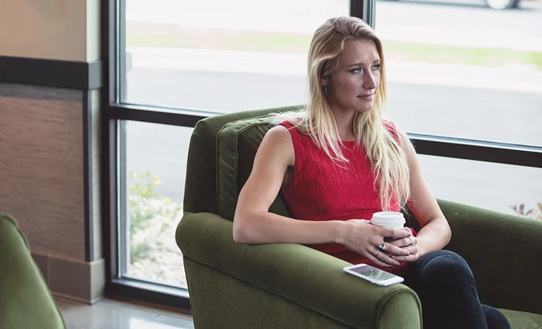Let’s Let Go of Your Financial Fears
As both a financial advisor and certified divorce financial analyst, I’ve had many dealings and conversations with women about money. They have shared some of their most personal feelings about finances and let me in on their vices and relationship with money. Many of the fears I hear about are related to economic realities unique to women: we typically earn lower wages than men, longer life expectancy requires increased savings, and childcare responsibilities (whether shared with a partner or not) tend to necessitate disruptions and flexibility in their employment. Here are some of my suggestions for overcoming some of the most typical female fears as they relate to money and economic well-being.

The Fear of Not Being Taken Seriously
Gone are the days when women didn’t have any financial independence or earning power. But even with all the advances we have made in the last 50 years, many women still feel uncomfortable discussing investments, money management, and banking. This discomfort translates to real fear about how seriously they will be taken when having conversations with professionals in the finance industry.
The best way to overcome this fear is to learn about finances and actively engage in managing personal money. Working with a financial advisor who understands their unique situation (divorced, small business owner, high net worth individual, etc.), and/or taking a financial education or literacy program, could be good ways to learn how to make smart and informed decisions.
The Fear of Not Having Enough
Statistics indicate that women outlive men by as much as five years (source: World Health Organization). While men and women share the fear of outliving their savings, women are even more anxious about this for obvious reasons. Establishing budgets, spending, investments, and an overall financial plan are essential in understanding money habits and planning for the future. While this fear is rooted in not wanting to lose financial independence, understanding exactly where the money is and how it is being spent each month can inform a sustainable financial plan.

The Fear of Being Alone
The loss of a life partner by death or divorce can have severe financial implications for women, particularly those women who left most of the earning and money decision making to their husbands. Here too, the best way of easing economic anxiety is by getting involved in money matters. All women should make sure they have full access to joint accounts and investments.
The Fear of Being ‘Homeless’
Not having a safe place to live is possibly the scariest of all money-related fears. Women who spent years building a household find it hard to cope with the possibility of losing their home. Understanding the cost of homeownership and mortgage payments is the first step to conquering this fear. In some cases, it may be advisable to relocate or downsize. Reduced maintenance costs, lower property taxes, and smaller mortgage payments and insurance costs are all better options than that feeling of or actual ‘homelessness’.
The Fear of Bankrolling Children Forever
Many parents make financial investments in their children’s or grandchildren’s future. Whether it is covering college tuition, giving them money toward a down payment, or paying bills, parents are committed to helping their kids. But moms (and dads) should not feel badly about cutting their kids off at some point. The key is to establish boundaries and help them while avoiding enabling them.
Money is a nuanced issue, but one that is well worth a woman’s time and energy. When women look to overcome their fears, sense of obligation, and even guilt surrounding money, they gain financial confidence and freedom. By letting go of the inhibitions women feel about cash and savings, they can maintain and even grow their wealth. Cultivating a comfortable relationship with money requires women to identify the emotions and issues hindering their financial health and making a commitment to releasing those feelings. By committing to achieving money confidence, women are fully capable of achieving financial freedom and security.

